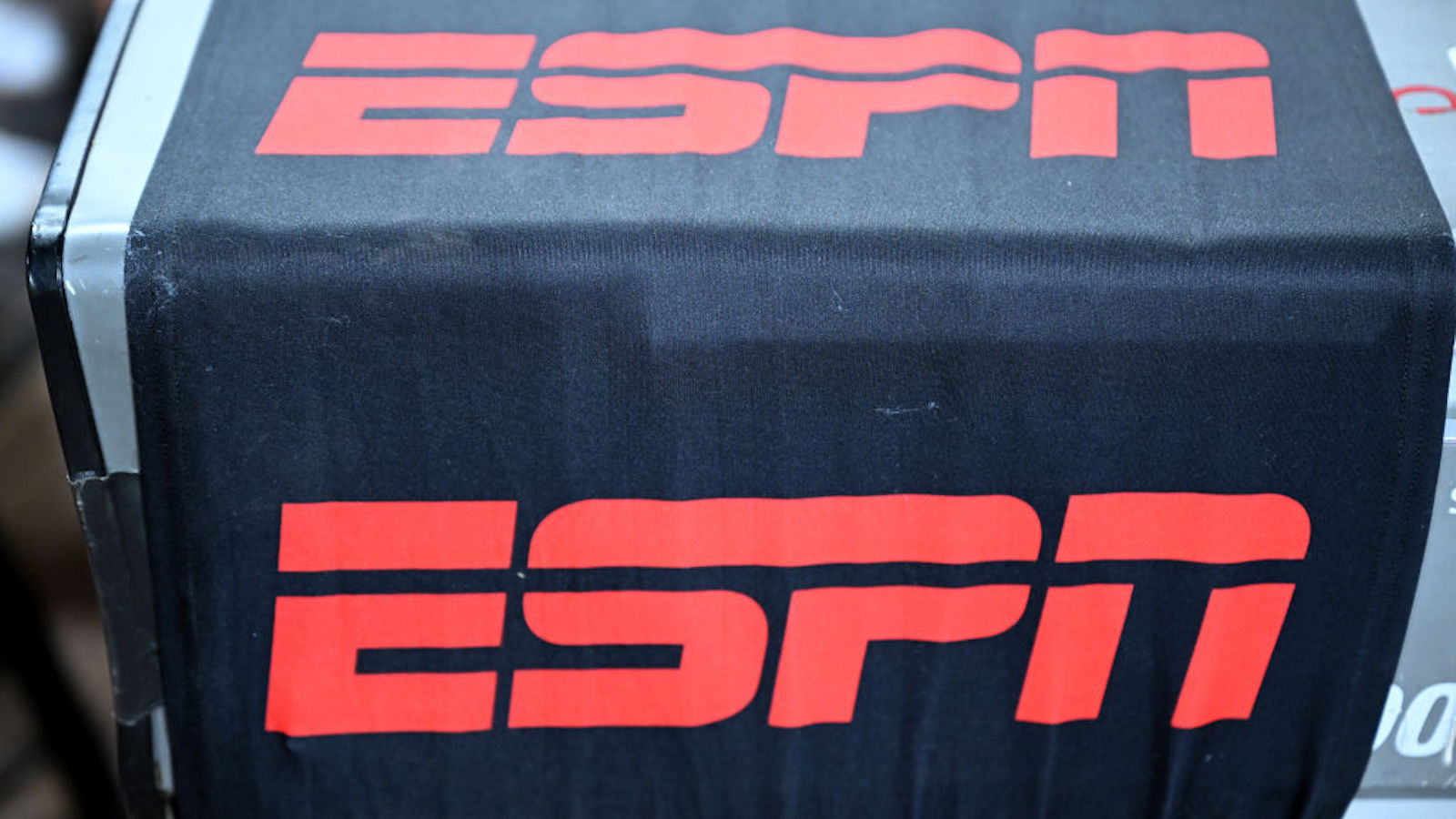ESPN announced on Tuesday that it was making a billion-dollar deal with casino company Penn Entertainment. Over the next 10 years, Penn will pay ESPN $2 billion in exchange for the right to slap ESPN's name on its sportsbook, and for the ability to market that sportsbook through ESPN's various media channels. This is going to suck.
The legalization of sports gambling has made being a sports fan much more annoying. Over the last few years, the entire sports media industry has been steadily and increasingly underwritten by advertising dollars from sportsbooks, who have made deals with as many leagues, publications, and broadcasters as possible in order to get more bettors onto their apps. Not so long ago, you could watch an NBA broadcast on TNT without Charles Barkley and Kenny Smith interrupting the action to tell you about an exciting new parlay available on whatever stupid gambling app they are in bed with, but that time has passed. To watch, listen, and read about sports now is to be assaulted by advertising for a product meant to separate you from your money as quickly as possible.
ESPN was never excluded from this—it had previously signed sponsorship deals with Caesars and DraftKings—but its hesitance to truly go all in on sports betting, an industry that Disney CEO Bob Iger used to make a lot of noise about not wanting to get too cozy with, offered some measure of respite. That's over now. This Penn deal makes sports gambling not just something that ESPN is adjacent to, but a core part of its business going forward. And because ESPN owns the broadcast rights to so many sports, we are all about to be hit in the face with a firehose of gambling-related content. Get ready for a whole afternoon block of programming dedicated to betting; prepare to hear Stephen A. Smith shout, "The over/under on this game is a DISGRACE!" several times throughout his 18 hours of daily airtime; make peace with the fact that Mike Breen and Doris Burke will be forced to talk over the action of Game 3 of the NBA Finals in order to tell viewers about how you can get your first five bets free when you sign up for the ESPN BET app.
If there's any silver lining here, it can be found in the opportunity to laugh at Penn Entertainment's corporate stumbling. Up until yesterday, Penn already owned an in-house media company meant to market its branded sportsbook to potential gamblers around the country. In 2020, Penn bought 36 percent of Barstool Sports for $163 million in cash and stock. Just a few months ago, Penn took full ownership of the company for another $388 million. The idea behind that purchase was identical to the one behind this new ESPN deal: Penn wanted to put Barstool's branding on its sportsbook and rely on Barstool's personalities to turn their audience into gamblers. That didn't really work out, evidenced not just by the fact that the Barstool-branded sportsbook failed to offer any real competition to the likes of FanDuel and DraftKings, but in Penn's willingness to return Barstool Sports to its original owner at essentially no charge in order to replace it with ESPN as quickly as possible.
PENN Entertainment also sold 100% of Barstool stock to David Portnoy "in exchange for certain non-compete and other restrictive covenants."
— RLinnehanXL (@RLinnehanXl) August 8, 2023
PENN can also receive 50% of the gross proceeds received by Portnoy in any sale or other monetization event of Barstool. https://t.co/CP5WR4Oxna
A company the size of Penn doesn't just give away a $500 million asset in exchange for some non-competes unless a bunch of high-paid consultants have gotten together and determined that the asset in question is more or less worthless to the company's bottom line. As it turns out, spending half-a-billion dollars on a bunch of white guys on the wrong side of 40 whose careers have been dedicated to fostering parasocial relationships with the world's most maladjusted New Englanders and cat-killers is not the key to meaningful market capture in the gambling industry. Lesson learned.






